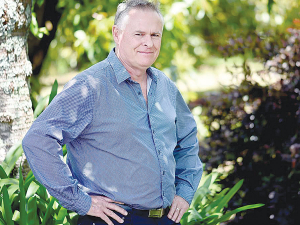Another Windfall for Fonterra Farmers, Unit Holders
Fonterra farmer shareholders and unit holders are in line for another payment in April.
 Fonterra chair Peter McBride says Fonterra has been advocating for greater transparency of milk price.
Fonterra chair Peter McBride says Fonterra has been advocating for greater transparency of milk price.
Fonterra is rejecting claims by rival processors that the co-operative can improperly influence the milk price to boost its raw milk supply.
Fonterra says it objects to claims that the co-op is "gaming" the system.
The comments were made in the co-op's submission to parliamentary select committee for primary production.
It is hearing submissions on the Government's proposal to amend the Dairy Industry Restructuring Act (DIRA) to accommodate changes to the co-op's capital structure.
Fonterra chairman Peter McBride told the committee that many of the proposed DIRA amendments seem to address perceptions around the transparency and independence of the milk price regime.
"We respect the national interest in our milk price, considering that in the last financial year Fonterra's milk payments represented $13.7 billion delivered to the New Zealand economy.
"And, as you will hear from our competitors, Fonterra's milk price sets the benchmark for the industry," says McBride.
"So all New Zealand dairy farmers, whether they supply Fonterra or not, benefit from the fair, transparent, and independently overseen price we pay for our farmers' milk."
McBride goes on to say that, for the record, Fonterra objects "to any inference that the co-op or the individuals involved in the process are somehow 'gaming' the system".
"In fact, Fonterra has been advocating for greater transparency of milk prices across the industry in all of our DIRA submissions.
"We continue to propose that DIRA be amended to require all processors to publish prices paid for farmers' milk.
"Improved transparency of milk prices paid by other processors will address the current imbalance of information available to farmers and support contestability in milk supply."
In their joint submission, four rival processors - Synlait, Miraka, Open Country Dairy and Westland Milk - claimed that with the dismantling of the open entry and exit provisions, the regulation of the base milk price remains the only substantive DIRA provision supporting contestability in the raw milk.
The submission acknowledges that the Government has included provisions which provide for increased transparency, oversight, and some independent management of the processes that determine the base milk price.
"These provisions provide crucial changes which can start to bring credibility to the base milk price," it says.
"The provisions do not prevent or limit Fonterra from paying a milk price different to the base milk price.
"Fonterra has nevertheless criticised them as unnecessarily intrusive.
"Fonterra criticism can alternatively be interpreted to be because they reduce Fonterra's ability to control the base milk price."
McBride notes that it's interesting their competitors are questioning the integrity of our milk price calculation.
He points out that, since 2012, the Commerce Commission has raised just two matters related to the inputs, assumptions and processes used to calculate the base milk price, which Fonterra has not promptly addressed to the Commission's satisfaction.
Agrisea NZ has appointed Craig Hudson as it's new chief growth officer.
State farmer Landcorp, trading as Pamu, is a forecasting a full-year net profit of around $100 million.
Tony Aitken, chief executive of Ruralco, has been awarded the Excellence in Business Leadership Award at the ANZ Business of the Year Awards.
Global trade has been thrown into another bout of uncertainty following the overnight ruling by US Supreme Court, striking down President Donald Trump's decision to impose additional tariffs on trading partners.
Controls on the movement of fruit and vegetables in the Auckland suburb of Mt Roskill have been lifted.
Fonterra farmer shareholders and unit holders are in line for another payment in April.
OPINION: Staying with politics, with less than nine months to go before the general elections, there’s confusion in the Labour…
OPINION: Winston Peters' tirade against the free trade deal stitched with India may not be all political posturing by the…